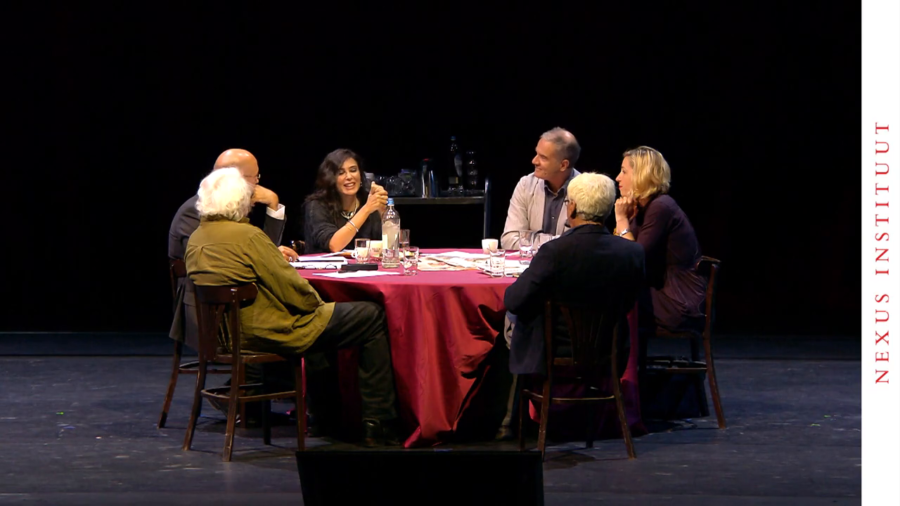Leon Wieseltier: There are these two basic fundamental fears, these ur-fears that are rippling through our societies. The first is the fear of complexity, and the second is the fear of change. I think that if you start with the question of the fear of change, the first thing of course you have to note is that a hundred years ago…it was a little more than a hundred years ago, Henry Adams the American writer wrote about what he called the acceleration of history. But history has never been accelerating as quickly, as speedily, as it is now. It is an absolutely dizzying…it leads to a kind of experience of mass vertigo.
And I think this fear of complexity and this fear of change has led many people in the West to seek comfort and refuge and asylum in a variety of fake or dangerous solutions. The first one I think of I would call the oversocialization of our idea of the person. That is to say the individual is now commonly reduced to his or her membership in a group. So that an individual is regarded mainly primarily and most gloriously as representative of a group. And the dignity of the individual now is increasingly owed to his or her belonging, as if belonging is the very highest to which human beings can aspire.
Instead what one has to do is get beyond one’s bubble, one’s trap, one’s origins, and recognize that not only do we need to speak across the differences but in fact we speak across the differences all the time. It’s a complete ideological hoax that people really are trapped in their bubble, in the partiality of their perspectives.
And so for these two larger reasons I would say that the single most prominent and alarming development of our time is a kind of global renaissance of illiberalism.
Pamela Paul: I would say building on what Leon said about the groups and the proliferation of groups that consider themselves based on identity even moreso than shared beliefs, that that’s coupled with another very dangerous component of modernity, which is technology and the splintering of media. So that when you had Thomas Mann who came to America and you had tens of thousands of people who would come out to see him, the promise of technology and of mass communications was this idea that if someone came at that level to speak, that they would be able to reach this mass audience. Whereas the opposite is true today because instead what’s happened is that the media, and with the Internet in particular, everything has become siloed so dramatically that each group is speaking only to itself. And so there is no exchange of ideas.
And then to go back to what Leon said about fear and anger, there is now a fear of ever speaking outside of your identity group and across those various siloed interests. And then incredible anger at anyone who dares to do that, to transgress in that way.
Nadine Labaki: Yeah. I mean, I would maybe add… I don’t know if it’s the right word but, one of the sicknesses also occasioned by this fear is the disconnection. Disconnection with others, because we have… Even though you know, with technology and with the Internet we have the feeling that we are more and more connected to each other. I think it’s the complete opposite that is happening. We are disconnected from other people exactly for that same reason that you talked about, which is we have divided ourselves in groups. We have divided us in groups, in parties, in religions, in countries. We have built walls, we have built gates, we have passports that identify us from each other. So there’s this fear of this difference, of this other.
Sari Nusseibeh: I think you know, we have many other problems to contend with that worry us. Primarily problems to do with justice. Problems to do with the economic situation, distribution of wealth. Problems to do with poverty throughout the world. And I think these are basic problems and these are problems that are developing. And one has to ask the question about Europe in this context in those terms, in the terms of you know…well Europe sounds in the self or for itself like a wonderful place and maybe people inside of it are happy or not happy. But the question is…and the United States as well, maybe. But then what about the rest of the world? And I think the main, from my point of view, problem that Europe has is that probably it does not see and interact with the rest of the world, even on the basis of the values that it professes itself to have. Liberal values, for instance. Equality, and so on and so forth. And I think that is a very important problem for Europe, as I see it from the Middle East.
Further Reference
Nexus Institute Symposium 2019, The Magic Mountain Revisited: Cultivating the Human Spirit in Dispirited Times event page
